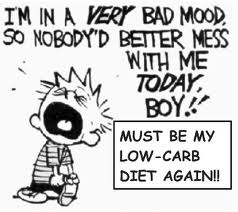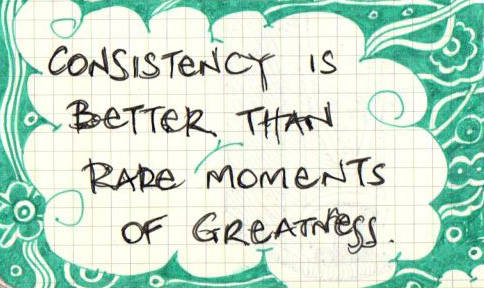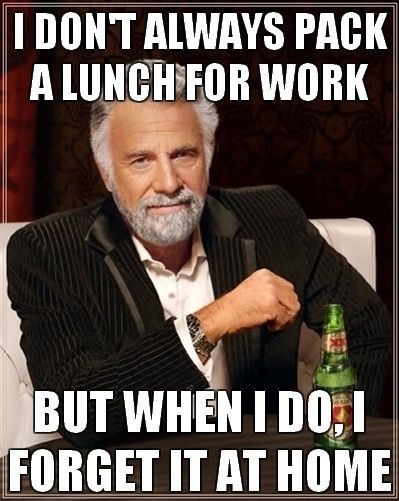Are you trying to lose weight? Gain weight?
Do you have a clue as to how many calories you should be eating?
(Now my eyes tend to glaze over when I see numbers, but bare with me, these numbers aren’t that hard

to figure. I
mean if I can do this, then you can too. Aaand, I have an example at the bottom and some tips too, so suck it up and keep reading….;) )
It depends on many factors including sex, age, activity level, build
. I can’t give you a flat out one-size fits all answer. Here’s a formula that will help you figure that out if you want a ballpark figure:
BMR calculation for men:
BMR = 66 + ( 6.23 x weight in pounds ) + ( 12.7 x height in inch
es ) – ( 6.76 x age in yrs )
BMR calculation for women:
BMR = 655 + ( 4.35 x weight in pounds ) + ( 4.7 x height in inches ) – ( 4.7 x age in yrs)
Once you have your BMR. Multiply it by your activity factor. This will give you a more accurate measure of your daily caloric expenditures. This calculation must be redone if goals change from muscle growth and weight gain to fat loss, and from certain exercise level to the next.
BMR x Activity factor:
1.1 -Light fitness training, such as light walking 20-30 minutes, 2-3 times per week
1.2 -Moderate training, such as walking 20-30 minutes, 5 times per week, or more vigorous activity such as sports activity 20-30 minutes, 2-3 times per week.
1.3 -Daily aerobic training 20-30 minutes, or daily moderate w
eight training
1.4 -Heavy daily weight training
1.5 -Heavy daily weight training coupled with intense sport training, or twice a day intense sport training.
Calculation: BMR x Activity Factor = Daily Energy Expendit
ure
To calculate for fat loss: Subtract 300-500 calories from your daily energy expenditure.
(-500 per day = 3,500 calories = 1 lb fat)
To calculate for muscle/weight gain: Add 300-500 calories to your daily energy expenditure
(average is 300 to avoid excessive fat gain)
This will determine the menu that best meets your energy needs. You may require adjustments to your daily menu if you miss or increase your exercise.
For example, let’s figure this out for me:
BMR = 655 + ( 4.35 x weight in pounds ) + ( 4.7 x height in inches ) – ( 4.7 x age in yrs)
655 + (4.35 x 123 lbs) + (4.7 x 63 in) – (4.7 x 49 years old) = BMR
655 + 535.05 + 296.1 – 230
.3 = 1255.85 calories required (at rest)
To incorporate my activity level, I’d multiply by 1.4 (heavy daily weight training) to get 1758.49
To maintain my weight, I need to consume about 1760 calories/day. To lose weight, I can take away about 300 calories/day (I prefer the lower number for healthy weight loss and so I’m not starving). To gain weight, I can add 300 calories to my daily nutrition.
I know this formula doesn’t tell you what KIND of calories you should be consuming, but it does give an idea as to quantity. You can refer to this post for the quality of nutrition you should be considering. As well, here are a few tips:

Tip # 1 Be consistent with you
r exercise and nutrition. Your body likes to maintain homeostasis, or regularity. Your metabolism will be more likely to speed up and burn calories versus store them when it knows when it will be fed again.
Tip #2 Protein is important to muscle repair and recovery as well as it helps stabilize blood sugar. You’ll feel less hungry when you have a bit of protein with every meal and snack.
Tip #3 I’m not a fan of low carb/no carb diets. I felt incredibly slow and stupid when I tried this. Carbohydrates are required for brain function, just ensure that you’re choosing nutritionally dense, high fiber, low glycemic carbohydrate choices and you’re fine.
Tip #4 There really is no ‘magic’ foods. Eat a variety of food through out the day. My best suggestion is to eat 5-6 meals and snacks spaced out 2-3 hours apart so you never get famished.
Tip #5 You plan your workouts, and you need to plan for your nutrition as well. It’s not always easy to make healthy choices when you’re out and about, so packing a lunch and snacks are imperative. I never leave the house empty handed. At the very least I have nuts or a protein bar with me in case I’m stuck. I often get asked about protein bars. I’m a big fan of whole foods as my first choice, but if I can’t get something healthy, then I’d rather have a lower carb/low fat protein bar of my choosing than to be victim to the convenience store choices.
Tip #6 Did I mention water, water and more water? Don’t drink your calories, hydrate through the day with water to help your metabolism and energy.
These tips may sound pretty basic, but honestly, healthy eating isn’t rocket science. It’s really just the consistent application of simple ideas. You’ll be surprised how performance improves when you feel great and drop a little flub.





